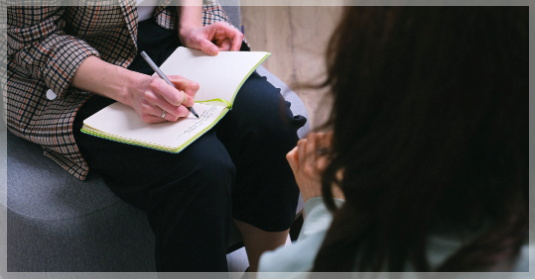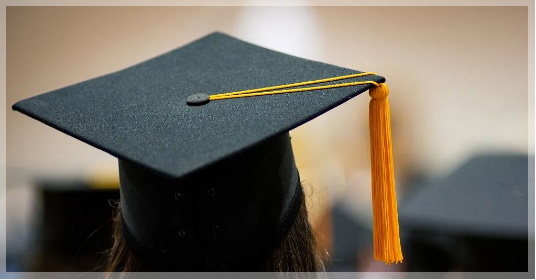
The annual application season is here again. Recently, we have encountered quite a few students from junior colleges, self-study examinations, and adult education programs inquiring about applying to study in the UK. This also indicates a problem: domestic strong enterprises have increasingly higher requirements for talent recruitment. Because those students who failed the college entrance examination or did not perform well are increasingly eager to enhance their academic background through higher-quality and higher-standard overseas education, so as to stand out better in the job competition.
During the consultation process with such students, after explaining their background, they always timidly ask: In my situation, can I still apply for studying abroad? To be honest, for students with this kind of background, the difficulty in applying for studying abroad is definitely greater than that for those with an ordinary undergraduate background. However, your school background is not an obstacle to your application for studying abroad! Not only can they apply for studying abroad, but if handled properly, they also have every chance to enter some schools with decent rankings. If you have had a similar experience and are preparing for your application in 2022, I hope the following content can help you sort out your application ideas. If you have just entered the school but already have plans to study abroad, I hope you can start making your study plan during your junior college period and plan and prepare in advance for your study abroad application a few years later.

First of all, a question that everyone is concerned about is: Do British universities recognize the junior college, self-study examination or adult education degrees from China? This issue is actually very simple. Everyone should know that the Ministry of Education of China has an official website for academic qualification verification, called the China Higher Education Student Information Network. (https://www.chsi.com.cn/) All academic qualifications that can be verified on the China Higher Education Student Information Network are recognized by British universities.
So, can the above educational background be directly applied for a master's degree in the UK? This needs to be discussed separately. After all, there are significant differences among different backgrounds. But generally speaking, if one wants to apply to top-ranked universities in the UK, the difficulty is relatively high. What level and ranking of the school one can apply to needs to be analyzed specifically based on each individual's situation.
1. Self-study undergraduate degree and adult education background
Similarly, it is necessary to first confirm whether you have dual certificates after graduation. If you have both a graduation certificate and a degree certificate (both certificates are complete), then you can directly apply for a master's degree in the UK with a self-study bachelor's degree. However, generally speaking, the possibility of being admitted to a university ranked within the top 150 in the QS ranking is very low. The specific ranking of British universities that can be applied to depends on a comprehensive assessment of the student's average university score, academic performance in their major, language proficiency test scores, and the major of the British university they are applying for. However, it should be noted that the completion forms of some self-study examinations and adult education are rather amateur, and the value of the academic qualifications obtained is relatively low. Some British universities also take this aspect into consideration. If the self-study undergraduate degree and adult education only have a graduation certificate but no degree certificate, it is not possible to directly apply for a master's degree in the UK. In the eyes of British universities, a self-study bachelor's degree and an adult education background with only a graduation certificate (but no degree certificate) are similar to an associate degree, and they are basically treated the same in applications.

2. College degree background
For students with an associate degree background, as well as those who have obtained a self-study bachelor's degree or adult education without a degree certificate, there are mainly three ways to apply to British universities:
Master's Preparatory Course
The master's foundation course is a smooth transition to the main courses in the UK. Master's preparatory courses usually teach some professional knowledge from master's programs, enhance your language skills, train your thinking abilities, help you adapt to the teaching methods in the UK, and enable you to meet the requirements of regular courses and smoothly transition to master's program studies. It usually takes about 0.5 to 1 year, and the enrollment time is also quite flexible. With an average score of 70-85+ and an IELTS score of 6.0+, you can try to apply for the master's foundation course. There are a wide range of majors to choose from in the master's preparatory program, and it can also be connected to the main courses of higher-ranked master's programs.
Advantages
The difficulty of the master's preparatory course is relatively lower. The master's preparatory course is mainly designed for international students. Therefore, the corresponding courses will be formulated based on the students' situations. While making up for the professional content, it will also strengthen the learning of English, as well as the cultivation of learning ability, research ability, etc.
The range of majors and schools that can be applied for in the master's preparatory program is also relatively wide. The range of majors that can be applied for covers business, computer science, media, education, law, and engineering. There are also many universities in the top 100 of the QS ranking that offer foundation courses, including Glasgow, Durham, and Sheffield. Some majors accept applications from students of different majors.
Disadvantage: While taking the same two years as a Top-up course, only a British master's degree is obtained, and the diploma of a regular British undergraduate student cannot be obtained.
TOP-UP application
Apply for a bachelor's degree after obtaining it through the domestic undergraduate entrance examination. Alternatively, apply for the UK's Top up program. Some UK universities accept three-year junior college students with relatively good grades to enter the last year of a UK undergraduate program (a three-year UK undergraduate program). If the grades are qualified, they can obtain a UK university undergraduate diploma and then apply for a master's degree.
When applying for a Top-up course in the UK, these issues should be noted
Not all schools offer Top-up courses. It is necessary to check in advance whether the school has a program for international students to transfer from junior college to bachelor's degree. When applying for a Top-up program, one can only study the major chosen during the junior college stage. That is to say, if one studies finance in a junior college, then one cannot study financial management and accounting, and the degree obtained later will also be BA of Business.
The associate-to-bachelor's program is a continuation course designed for students at certain special stages to meet the bachelor's degree standards of the British education system. Because the design of this kind of course has very specific and strict requirements for the learning content in the early stage. The courses for the junior college to bachelor's degree program are not very comprehensive. Specifically, there are: Business management, economics and finance, computer science, tourism and hotel management, logistics, etc. It does not include some overly specialized fields. That is to say, if your domestic junior college major does not have a top-level course in the UK, it means that you cannot pursue a bachelor's degree in the UK. Top-up is a type of transfer degree, so most universities do not provide detailed information about this program.
Advantages
1. Short class hours. Compared with the two to three-year domestic courses for upgrading from junior college to bachelor's degree, the Top-up program only takes one year. One needs to pass the course assessment and complete the graduation thesis.
3. The degree certificate of the Top-up course is exactly the same as that of a regular undergraduate student. The academic qualification is recognized by any university in the UK and can be applied to all the prestigious universities in the UK. In the subsequent application for a master's degree, there is no restriction on the previous academic institution.
Disadvantage
There are relatively few schools in the UK that offer Top-up courses, and most of them are not ranked high.
Admission is difficult and the academic quality requirements are high. Undergraduate education in the UK is highly rigorous and is one of the most valuable undergraduate programs in the world. It is a distinctive course of the UK. Therefore, students who go to the UK to study Top-up courses face dual challenges in language and professional knowledge. Besides requiring students to have relevant professional backgrounds, as mentioned above, Top-up courses have very high requirements for English proficiency, with most students needing to achieve an IELTS score of 6.0 to 6.5, which is quite challenging. If some students' IELTS scores do not meet the requirements, they can first take the language enhancement courses provided by British universities to ensure that they have sufficient ability to complete the intense and demanding courses of the last year of undergraduate study in the UK. If your academic performance is average, that is, your average score over the three years of university is between 60 and 70, it is not recommended that you apply for this program. One reason is the difficulty in getting admitted, and the other is that it poses a considerable challenge to oneself. On the contrary, for students with strong academic abilities and proficiency in English, it is better to choose a Top-up+ master's program for upgrading from junior college to undergraduate, as it offers good value for money.
Junior College to Master's Degree
Some schools ranked 50th and below in the UK accept direct applications from junior college students for master's degrees in the UK. This requires three years of work experience and has relatively high requirements. There are few schools to choose from, and their rankings are relatively low. Moreover, the range of professional choices is also limited. If you have already graduated and have 2-3 years of closely related work experience, with an average score of 75-85+ and an IELTS score of 6.0-7.0+, you can start preparing for a direct entry to a master's program in the UK. However, it is also necessary to be mentally prepared as the choice of school and major is quite limited. This is because many top universities have clearly stated that applying for a master's program requires both a graduation certificate and a degree certificate. Most schools that accept students with a junior college background offer a limited range of majors, usually in business, engineering, and media fields, with business being the most common. The schools that can be applied to include: the University of Essex, the University of Aberdeen, Alberta University, Bath Spa University, Swansea University, etc.

Advantages: Low time cost. For those who are already working and have the need for household registration, they can consider directly applying for a master's degree.
Disadvantage: Top-ranked schools generally do not accept direct applications. In addition, there are quite a few restrictions on students. They need to have more than three years of relevant work experience. For those who want to switch careers, this is not a suitable option.

The above content is all based on the experience of successful cases of Yisi Boluo in recent years. Considering that the educational qualifications of students with junior college degrees, self-study examinations, and adult education are rather complex, when applying, it is necessary to analyze the specific situation specifically. It is best to have a professional teacher to guide and plan. Overall, although British master's programs place more emphasis on the applicant's undergraduate school background, whether the application is successful in the end is still influenced by many other factors. Everyone should keep a calm mind and apply based on their own actual situation. Of course, the admission requirements and practices of British universities are constantly changing. Some schools have become stricter, while others have relaxed their standards. Everyone still needs to adjust in a timely manner according to the new circumstances.